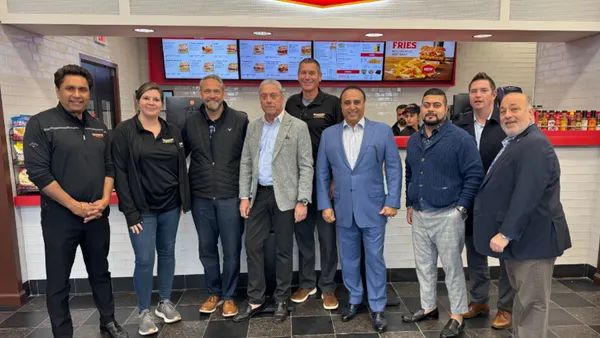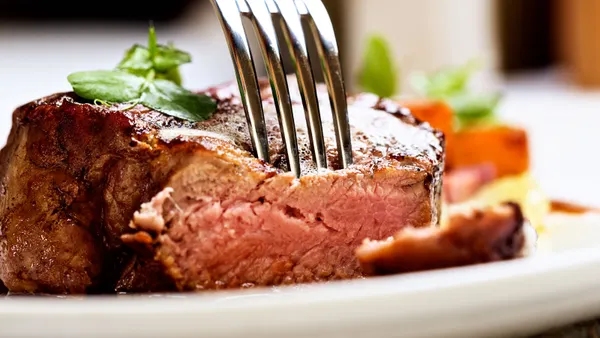Dive Brief:
- Papa John's has signed one of its largest traditional store development agreements in North America in over 20 years, according to a press release. HB Restaurant Group, which owns 43 restaurants in the Mid-Atlantic area and has been a Papa John’s franchisee since April 2019, will open 49 new stores in Philadelphia and southern New Jersey between 2021 and 2028.
- Papa John's development pipeline as of the end of Q2 2020 includes about 1,100 restaurants, with 100 units in North America and 1,000 units globally, the majority of which are expected to open over the next six years, according to its Q2 2020 earnings release. Its current systemwide store count is 5,347.
- Following several months of double-digit same-store sales growth, the company is focusing on significant unit growth going forward, hiring new leadership and bringing in new resources, Papa John's CEO Rob Lynch said during the company’s Q2 2020 earnings call. Comp sales among North American franchisees were up nearly 30% during Q2 2020, compared to a decline of 5.3% during the year-ago quarter.
Dive Insight:
While the restaurant industry sustained some of its worst losses in April following dining room closures, Papa John's reported a 27% increase in North American comp sales, its best month in its 35-year history, which has shifted the company's focus into growth mode.
"After managing through significant challenges in 2018 and 2019, Papa John's domestic franchisees are in a stronger position today than they have ever been," Papa John's CEO Robert Lynch said during the company’s Q2 2020 earnings call. "Strong sales and improving margins provide a strong foundation to our new development strategy in the U.S. and internationally."
New store development paused during Q2, with permitting suspended by local governments during the pandemic. Because of strong store sales, however, closures among traditional North America franchises were the lowest rate the company has seen in 10 years, Lynch said. During the quarter, nine franchised units were closed in North America. Comparatively, 33 were closed during the year-ago quarter.
Lynch said the company's e-commerce and delivery model, the expected availability of many attractive real estate opportunities in the months ahead and the company’s transformation make it a worthwhile investment.
The deal with HB also represents a shift from planning annual growth to one that occurs over time, Papa John's Chief Development Officer Amanda Clark said. The new units won’t be crammed into one year, but over the course of several years, which allow operators to ramp up over time, Clark said.
The company is also focusing on making sure that franchisees open profitable stores.
"It's not successful if a franchisee opens his door one year and closes in the next. That's not good for a franchisee, and it’s not good for Papa John's," Clark said, adding that the company is investing in analytical tools to help franchisees understand what the key drivers are to a successful store.
The company is also helping franchisees find the right real estate, the right brokers, helping with construction support like providing their own contractors if they are in a jam and offering architecture support to help them get drawings approved — ultimately allowing them to open faster to start generating sales, Clark said.
"Positive sales are a positive thing for everybody," Clark said. "It allows us to focus on what’s next or in the future. Talking about development when sales are down isn’t the easiest conversation to have."









